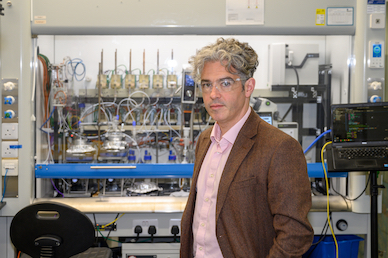University of Glasgow spinout firm Chemify has announced funding of £36 million, including a Series A led by Triatomic Capital.
Triatomic was joined by new investors including Hong-Kong based Horizon Ventures, US-based Rocketship Ventures, Possible Ventures, Alix Ventures, Scotland-based Eos, and the UK Government Innovation Accelerator program.
Existing investor BlueYard Capital also participated in the round.
Founded in 2019 by CEO Lee Cronin with backing from David Cleevely, co-founder of Abcam, Chemify is based on decades of chemistry research, robotics, AI, and conceptual advancements from Cronin’s Digital Chemistry Laboratory at the University of Glasgow.
Professor Cronin’s pioneering research spans the digitisation of chemistry including the use of artificial intelligence in chemistry to explore chemical space — the trillions of possible combinations of natural elements.
Chemify says it can help reduce the amount of costly and time-consuming experimentation required to discover promising new molecules, speeding up their development as products to underpin advances in medicine, farming, materials science and green energy.
Cronin said: “It has long been our dream to digitize chemistry, and I’m delighted that through this funding, Chemify is building a company that can design, make, and discover complex molecules on demand using digital blueprints on demand faster, more efficiently, and safely than is currently possible.
“Our mission is to deliver better molecules for pharmaceutical and industrial partners in a fraction of the time and cost currently required.”
Chemify spun out from the University of Glasgow in March 2022 and has built a world class team to commercialise the digitization of chemistry.
The underlying technology was designed and developed by Cronin and his team at the University of Glasgow, based at the Mazumdar-Shaw Advanced Research Centre.
Steve Hochberg from Triatomic Capital said: “We are excited to be leading the series A in Chemify focusing on delivering digital-chemical solutions to many partners where molecular design and manufacturing is a critical bottleneck.”
